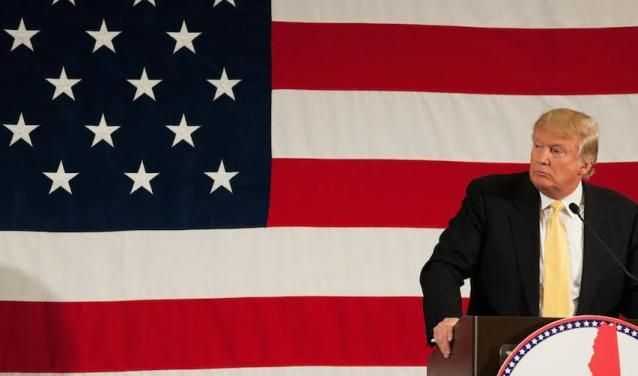Home>An Uncertain Future: US Foreign Policy under President Trump

15.11.2016
An Uncertain Future: US Foreign Policy under President Trump
On 9 November 2016, in the wake of Donald Trump’s surprise victory in Tuesday’s US Presidential election, the Sciences Po Paris School of International Affairs organised a panel to address the future of US relations with the rest of the world.
The event featured a diverse forum of former foreign affairs ministers who now serve as faculty members at the the Sciences Po Paris School of International Affairs, and unsurprisingly attracted an audience of several hundred students. Former Spanish foreign minister Miguel-Angel Moratinos, former Austrian foreign minister Ursula Plassnik, former Costa Rican foreign minister Bruno Stagno-Ugarte and French foreign minister Hubert Védrine shared both their astute insights into the election’s outcome and their tenuous predictions for the uncertain future of US diplomacy.
A New Trajectory for Europe and the World
“Shock seems to be the new normal, so we refer back to the first rule of national and international crisis management, which is ‘keep cool’,” Plassnik quipped in her opening comments, noting that Clinton’s defeat was dumbfounding. Stagno-Ugarte echoed her sentiment: “This new reality... forces us to remain calm and carry on.” The panelists spoke in cautious tones, in part because Trump has outlined only a handful of his foreign policy objectives despite campaigning for almost a year and a half.
While the panelists were reticent to make any firm predictions of President-elect Trump’s still ill-defined foreign policy aspirations, the panel agreed that the United States would most likely become more isolationist and protectionist under a Trump presidency, a stunning reversal of American engagement with the rest of the world since the mid-twentieth century. “The old order is over…. We are in a new chapter of history,” Moratinos contended. The European ministers agreed that the United States is likely to distance itself from Europe in the coming years as part of this trend toward isolationism. According to Moratinos, this will be felt most in NATO, whose European members Trump has already criticized for not meeting their stipulated financial commitments.
This distancing, however, presents an opportunity for Europe. The panelists admitted that Europe’s heavy reliance on the United States since the end of the Second World War had precluded the continent from coordinating internally. “The EU has been too slow to get its act together,” Plassnik argued. Trump’s expected isolationism may therefore be a blessing, the precursor to Europe’s inward turn toward deeper, regional integration.
A similar phenomenon may take place elsewhere in the world as well. During the Q&A portion of the lecture, the diverse student body in attendance diverted discussion away from Europe and toward other areas of the globe, namely East Asia and the Middle East. Again, the panelists cautioned against making foolhardy predictions of future US foreign policy. Moratinos, however, noted that the world will likely witness “more disengagement of US policy in the Middle East”, except in relation to Israel, which generally shares a special relationship with American conservatives.
The Trump Doctrine: From Campaign Promises to a Foreign Policy
Rhetoric is more easily produced than policy, a point the panel stressed throughout the event. In today's highly-connected and synchronized world, it will be very difficult for the United States to retreat from the global stage. “You cannot escape the world,” Moratinos assured the audience. Indeed, it will be difficult for Donald Trump to retreat on all fronts and in all regions where American involvement has been a cornerstone for years, if not decades.
The panel concluded with a note of positivity despite the general apprehension among internationalists following Trump’s electoral victory. Striking an optimistic chord, Plassnik ended with an “expression of belief in the resilience of not only the American Constitution but also...democratic institutions and constitutions around the world.” Truly, diplomacy will continue to transform the globe in the coming years whether the United States is guiding this change or not.
by Stuart Richardson, student in the Master in International Security at the Sciences Po Paris School of International Affairs.